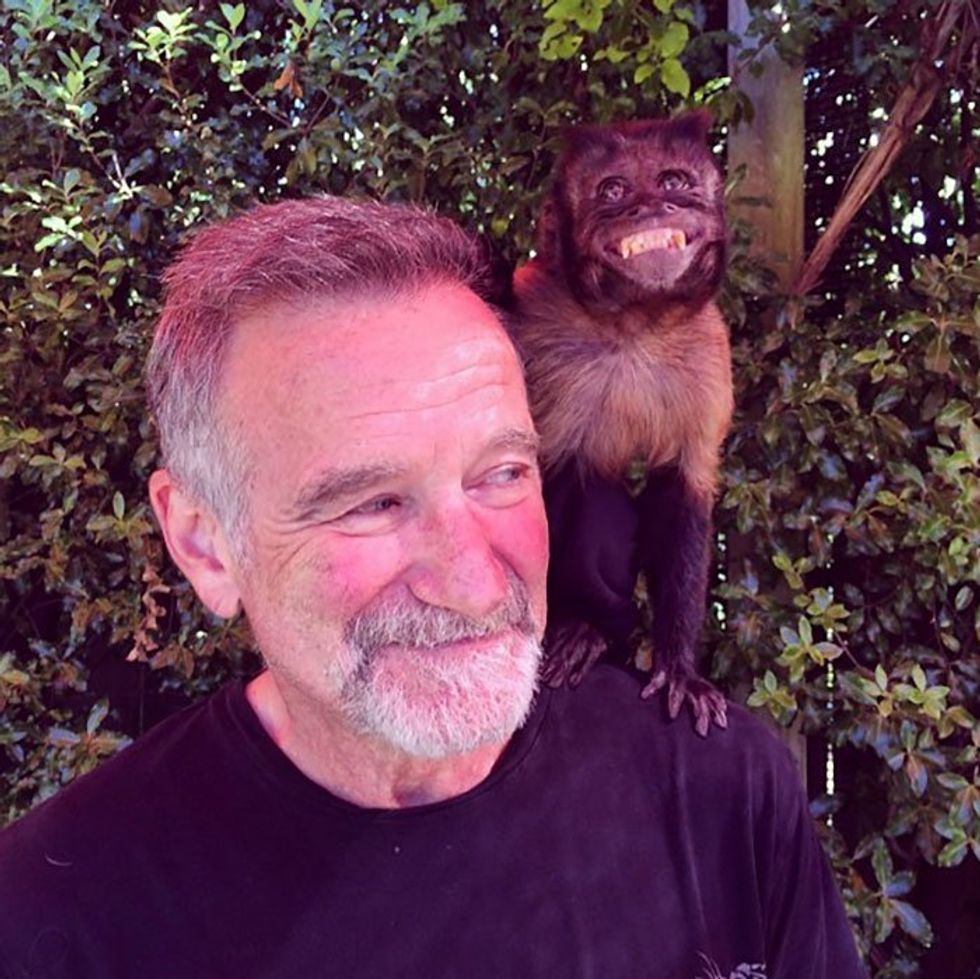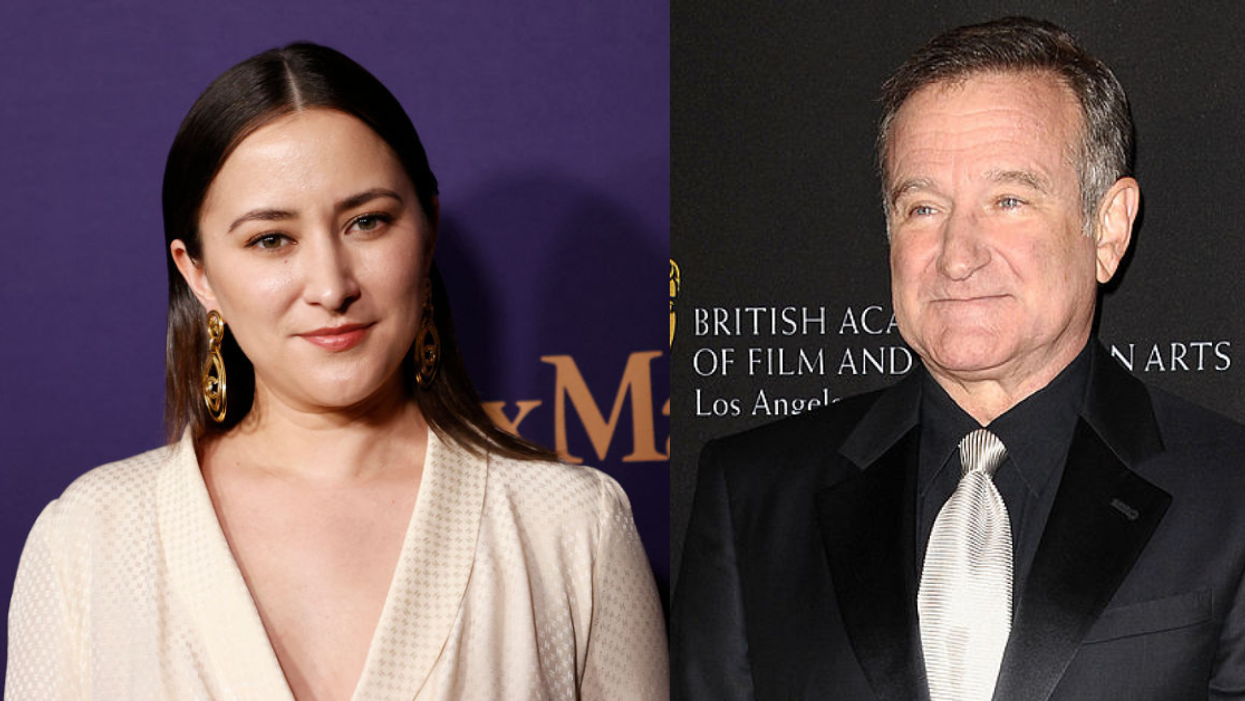Actor and director Zelda Williams—the daughter of the late actor Robin Williams—called out a fake post that made the rounds on the 10th anniversary of her father's death that falsely claimed he had a pet monkey.
The original post, shared on X, formerly Twitter, on August 10, featured a photo of Robin with a monkey on his shoulder, accompanied by the following caption:
“One of the last photos of a gem of a man, with his pet monkey, taken a few days before he committed suicide by hanging at the age of 63.”
You can see it and the photo below.

The post soon caught the attention of the Hollywood scion, who swiftly shut it down:
"It’s been brought to my attention some probably AI written BS like this is going viral. Dad didn’t own a pet monkey, NO ONE should, and if you’re ever tempted to, support your local exotic animal rescues instead. That is his Night at the Museum costar, who now lives at one."
You can see her post below.
Many appreciated her for speaking out.
Zelda Williams has previously criticized the use of artificial intelligence to recreate deceased actors.
Last year, she said she has personally "witnessed for YEARS how many people want to train these modes to create/recreate actors who cannot consent, like Dad," who starred in such classics as Dead Poets Society, The Fisher King, Aladdin, and Good Will Hunting.
She said she has already "already heard AI used to get his 'voice' to say whatever people want and while I find it personally disturbing, the ramifications go far beyond my own feelings."
Her remarks came amid the SAG/AFTRA strike that was happening at the time. Many actors criticized major studios for owning an actor's likeness in perpetuity after they have passed and SAG/AFTRA said then that a performer's voice, likeness, or performance can be used to train an artificial intelligence system to generate "new visual, audio, or audiovisual content."
Concerns about this practice continue and video game performers recently voted to strike, speaking out against the unchecked use of artificial intelligence that could enable game makers to replace them by training AI to mimic their voices or create digital replicas of their likenesses without consent or fair compensation.








 @PreetBharara/X
@PreetBharara/X @RepBrendanBoyle/X
@RepBrendanBoyle/X @twesq/Bluesky
@twesq/Bluesky @christopherharris/Bluesky
@christopherharris/Bluesky @evangelinewarren/X
@evangelinewarren/X






 @FrankC164/X
@FrankC164/X
 AMC
AMC